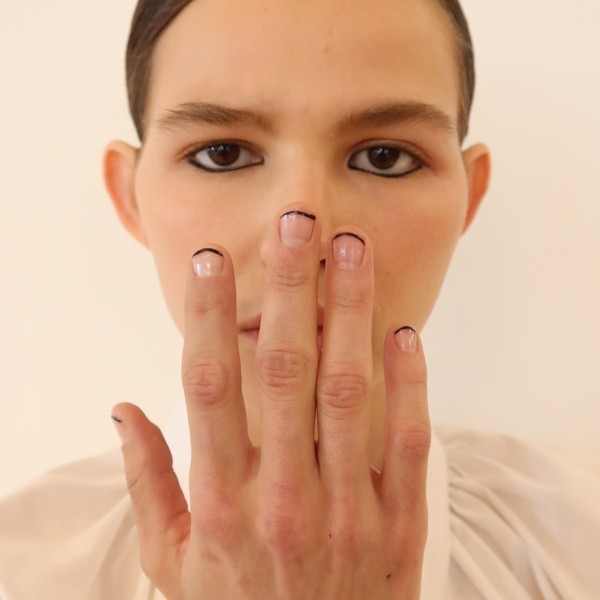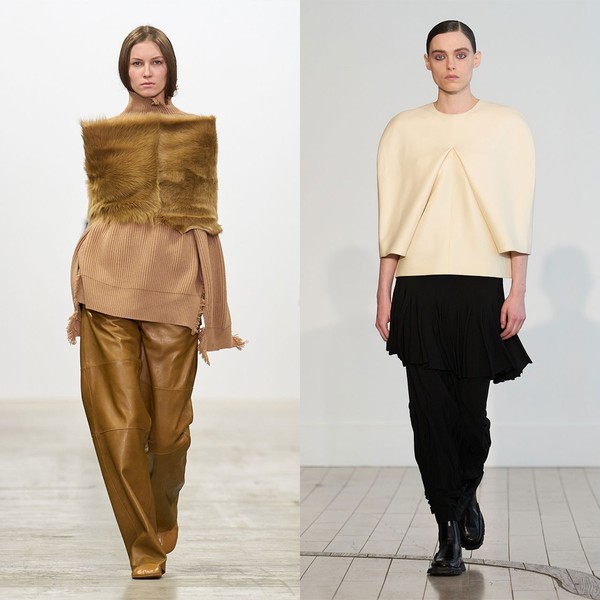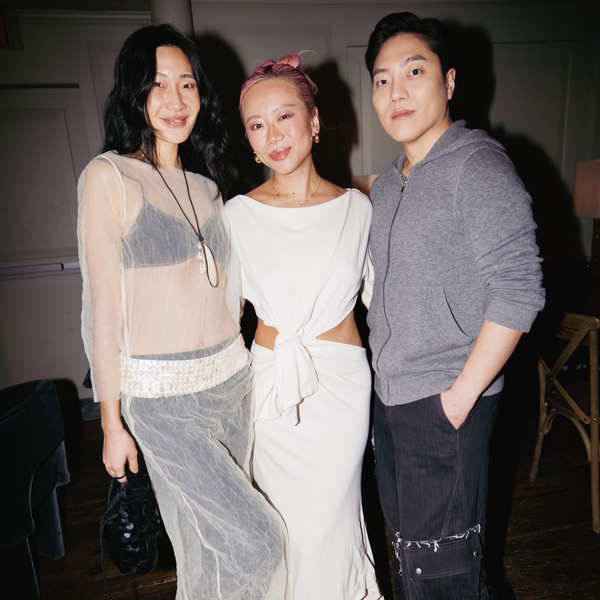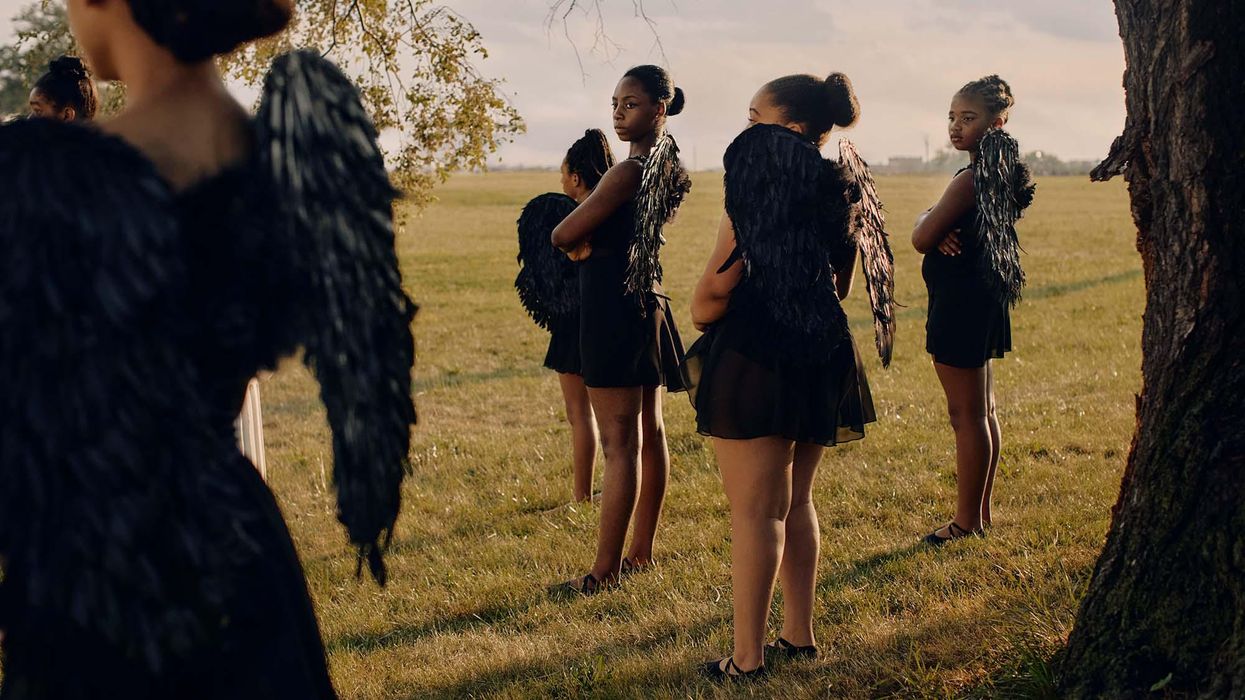
Everyone who comes to New York has a pop culture moment that sparked their decision to make the move. Gossip Girl is to blame for an entire generation’s disappointment when they saw loft rental prices in Dumbo. But for photographer Micaiah Carter, it was a scene in The Hills spinoff series, The City. Watching a fashion photographer work in an early episode, it hit him: This was what he wanted to do and New York was where he needed to be to do it. When Carter showed the scene to his father, his father encouraged him to realize this dream. And when Carter got a scholarship to Parsons School of Design, his dad made up the difference in expenses so he could go.
Now, years later, Carter’s stunning, sensitive images place him among his generation’s most talented photographers, having shot some of the world’s biggest celebrities, including Zendaya, The Weeknd, and Pharrell Williams, and editorials for major brands and publications. Carter recently celebrated the opening of his debut solo exhibition, American Black Beauty Vol. 1, which combines his fashion photography with his personal work of his family, archival imagery, and ephemera. The show is a tribute to his father, a Vietnam veteran, who passed away in 2021. Gathering the archival materials for the exhibition solidified the lesson learned from the many times he looked through photo albums with his grandmother on her porch and from the photos and footage taken by his father throughout his childhood: that understanding the past and documenting the present is essential to the future.
Coveteur caught up with Carter on the eve of his exhibition’s opening to discuss why Tumblr was a crucial gateway for young creatives, his (relatable) obsession with Beyoncé, and what he hopes American Black Beauty Vol. 1 will convey to young Black creatives.
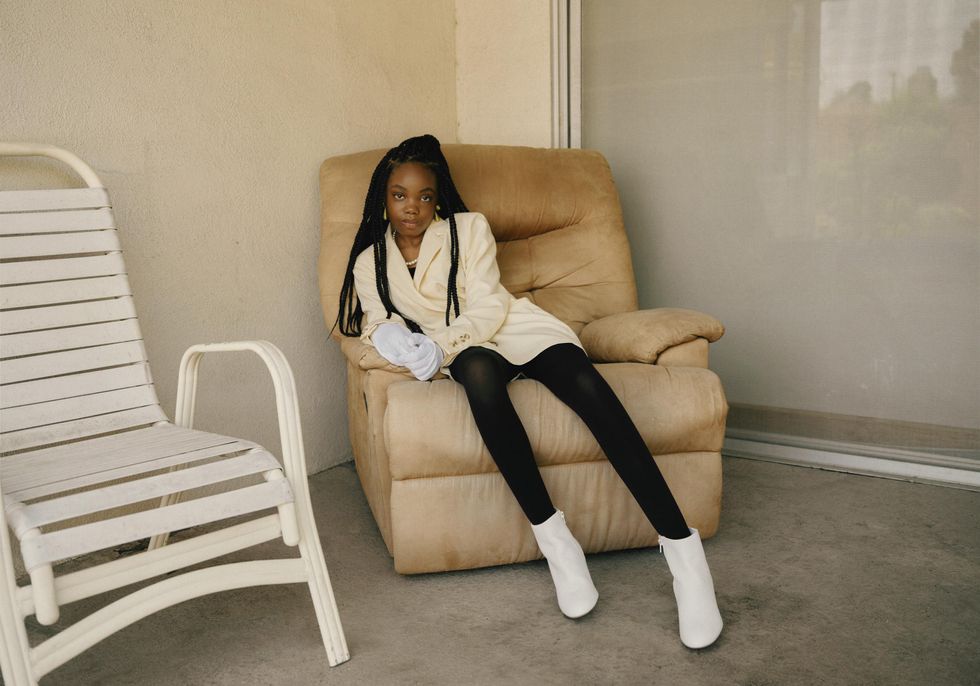
Your first solo show brings a lot of different elements together: your editorial work, personal work, and the ephemera. What do you see as the through-line?
"I think me. I really was able to find myself in a lot of these works. Over the last six years, since I graduated college, I've been doing so much commercial, so much celebrity, so much iconography, I want to call it. What I wanted to do with this show is remove all that and go back to the basics of how I was shooting in college and before. I think I had a sense of curiosity and of discovery, that I didn't lose because with celebrity it's so different, but I think I neglected shooting in those ways.
"My first real job was working at the local newspaper in Victorville, a really small city in California. I love shooting documentary-style. I love not having any plan shooting and just feeling it out. I'm a very intuitive person. I think that is what the show gives; it's just me trusting myself for the first time. Having it be your own show, all the answers are in yourself. I can't look to anyone else to speak to me, and it's been such a great experience to do that on top of healing and moving forward from what happened with my dad. I'm really excited that I finally feel like I can give myself, in a public sense."
You’ve mentioned your father was always very supportive of your work. How did he demonstrate that throughout your childhood or when you discovered you wanted to pursue photography?
"I have brothers who are a lot older than me, like 15 years difference almost, so when my mom and dad had me—I'm the only child between them—I think he just wanted me to feel like I could be myself. Even with college, it was him that let me go, basically. Because I got a scholarship, but it wasn't covering everything, so he decided he would help me out with going to New York and really pursuing my dreams. He really trusted me.
"I don't know if you know that show The City. I was obsessed, and there's this episode where Kelly Cutrone had a photographer come in, and I was like ‘wow, I want to be that photographer.’ I was like New York is where I think I need to be. L.A., this was like 12 years ago, was like a vacation spot. It wasn't like somewhere where people took photography—in the way I wanted to—very seriously. It was more about commercial or beach vibes for photos. And I didn’t really want to do that. When I went downstairs after I watched the episode of The City, I was like, ‘Dad, look at this, this is what I want to do.’ And he was like, ‘Ok, figure out a plan so you can do this.’ So, I applied to three to four schools out here. Parsons gave me the most scholarship money and it was a wrap from there."
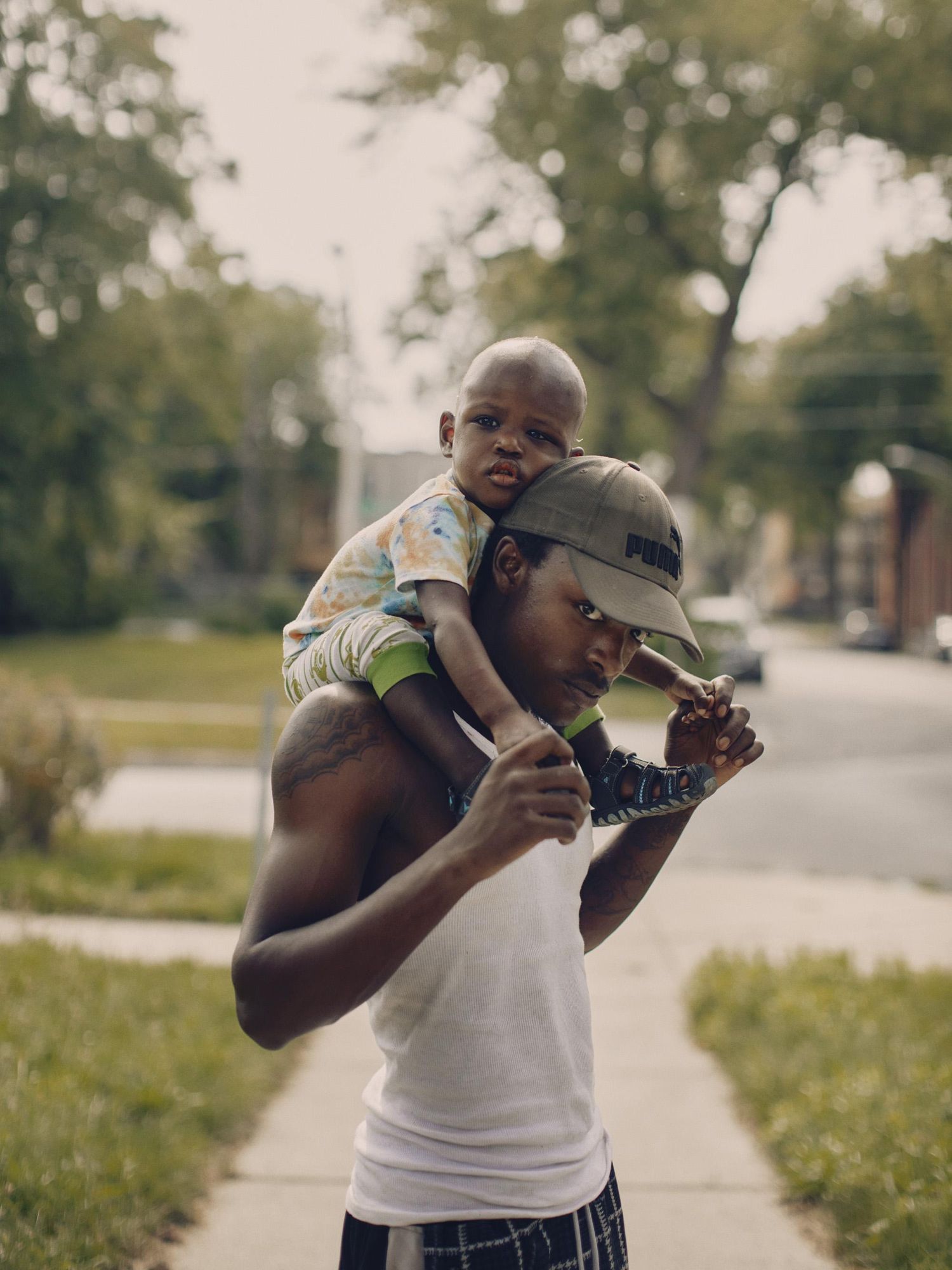
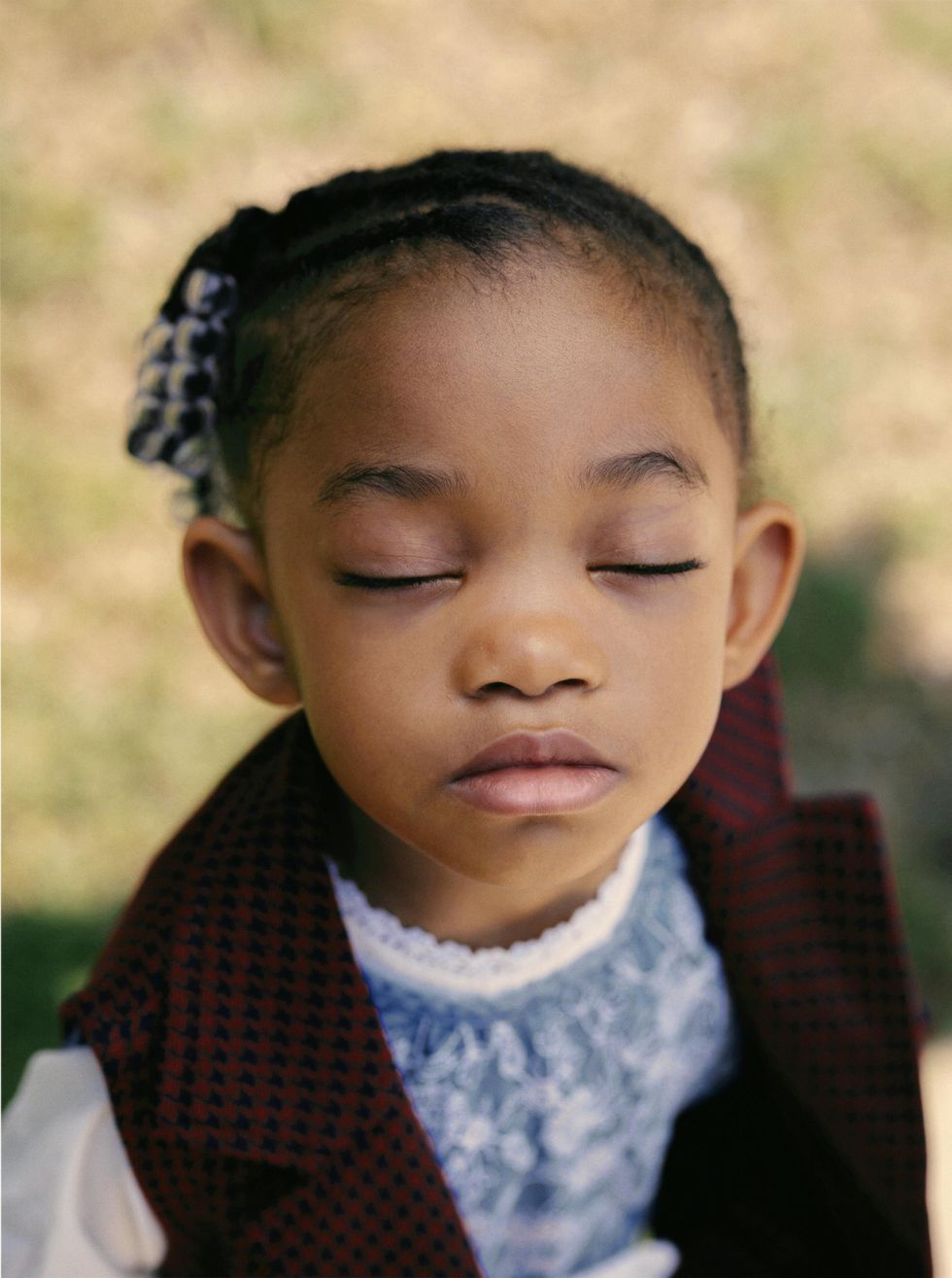
Another really important creative entry point that you've noted is Tumblr. Can you speak to the impact Tumblr had on you as a young person being turned onto photography?
"It was the first time I was actually seeing photography, even if it's a girl shooting on her Blackberry or something like that [laughs]. iPhones weren't popular, Instagram wasn't a thing. I was really amazed by seeing these fashion photographers and the scans from Vogue, Vibe, Ebony, and all these old vintage magazines. I think everything was a big inspiration from that website. It really gave kids that weren't in big cities a chance to feel like they were a part of something bigger."
Were there any standout editorials that really blew your mind?
"I was so into fashion photography. Alasdair McLellan, I really loved his work. I really love Nick Knight; he was a big inspiration to me. I used to watch his SHOWstudios all the time. Not understanding what was going on, but still watching that 45-minute stream and thinking, ‘Oh my god, this is insane.’ I remember one time he had this photo shoot on the iPhone 4 with Iggy Azalea.
"Just seeing photographers be themselves—granted I didn't see a lot of representation of myself, and during that time, I didn't even question that because I didn’t know any Black fashion photographers. I didn't learn until later that Gordon Parks shot for Vogue and about Kwami [Brathwaite] and a bunch of other people that I really respect now. But it wasn't something that was publicized. It was just like David LaChapelle, who is also another inspiration—those works of pop culture icons I loved.
"I'm obsessed with Beyoncé. I'm Beyhive forever. Honestly, a lot of the reason I got into photography was because of seeing her visuals. I remember I was like 12 or 13 years old and Beyoncé dropped B'Day, and I went to Walmart, and I was like, ‘Mom, I have to get this. This is my birthday.’ So, she bought that and some Kelly Rowland album. It's wild talking about this because it shows my age—I had a portable DVD player that I just carried around with me, and I was so obsessed with the visuals for B’Day. A lot of things were just hitting me. Like, I want to do something like this. I want to direct or do something with creating."
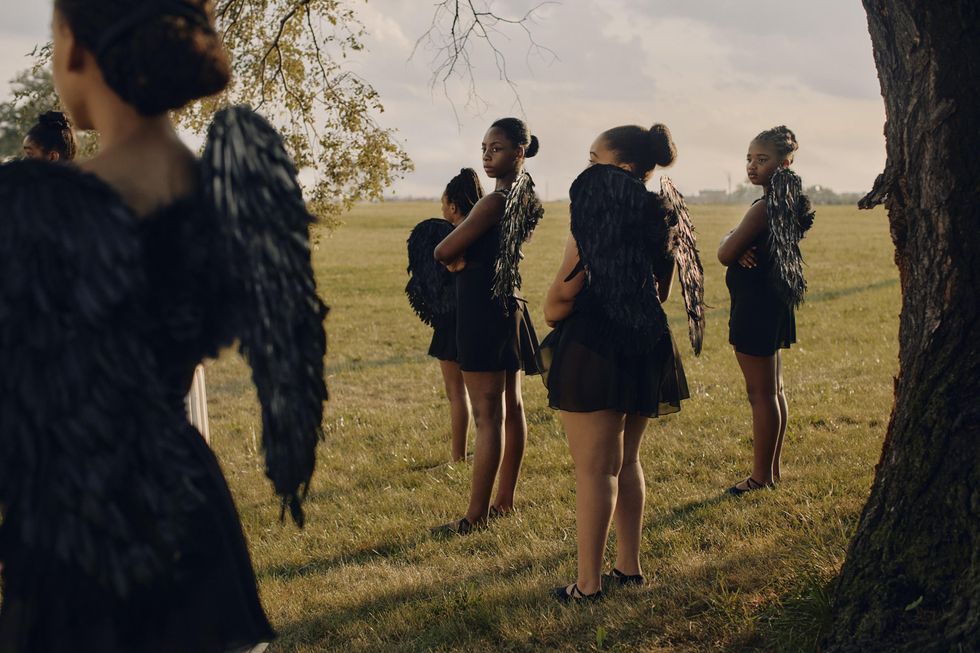
I'm interested to hear about the difference in your processes for your documentary and editorial work. How does your approach change?
"For documentary, I plan less. I trust my intuition a lot more. With fashion and commercial, it's more of a true collaboration. You're collaborating with other artists, other brands, other publications that need their own aesthetic fulfilled. With documentary, it's purely like me and the person I'm shooting, if the person even knows that I'm shooting them. I have some photos of my niece that I shot a long time ago, and she was crying because her dog got out. But it looks like she's just wiping her eye. Trusting my intuition for those moments. I feel more connected to those photos in a way."
Is that the type of photography you see yourself pursuing more in the future?
"Yeah, definitely. I want to shoot more, more than ever. I love collaboration, and I want to incorporate the collaboration part but not focus so much on what the outcome will be. To really be in the moment and in the present. I'm lightly pushing the stuff I learned from collaborations and commercial fashion to a more personal aspect. I think people [non-models] aren't used to having their makeup done or a stylist have clothes options. Especially with shooting my family, it was a good experience to kind of have them feel that, and you can see it through the imagery."
I love when fashion photography is street cast and feels less polished.
"Yeah, like it's random almost. I love shooting editorials. For example, the Pharrell shoot for GQ. That shoot is personal to me because it doesn't make any sense [laughs]. Like, there's no storyline. It was about bending masculinity, but I was just like, let's just have fun. Let's shoot Pharrell pouring a Perrier can. It also reminds me of Juergen Teller, who I'm also a big fan of, and Wolfgang Tillmans. From my perspective, I haven't watched a lot of interviews, they really build off feelings and they trust themselves, even if it might look crazy to everyone else. I really appreciate that."
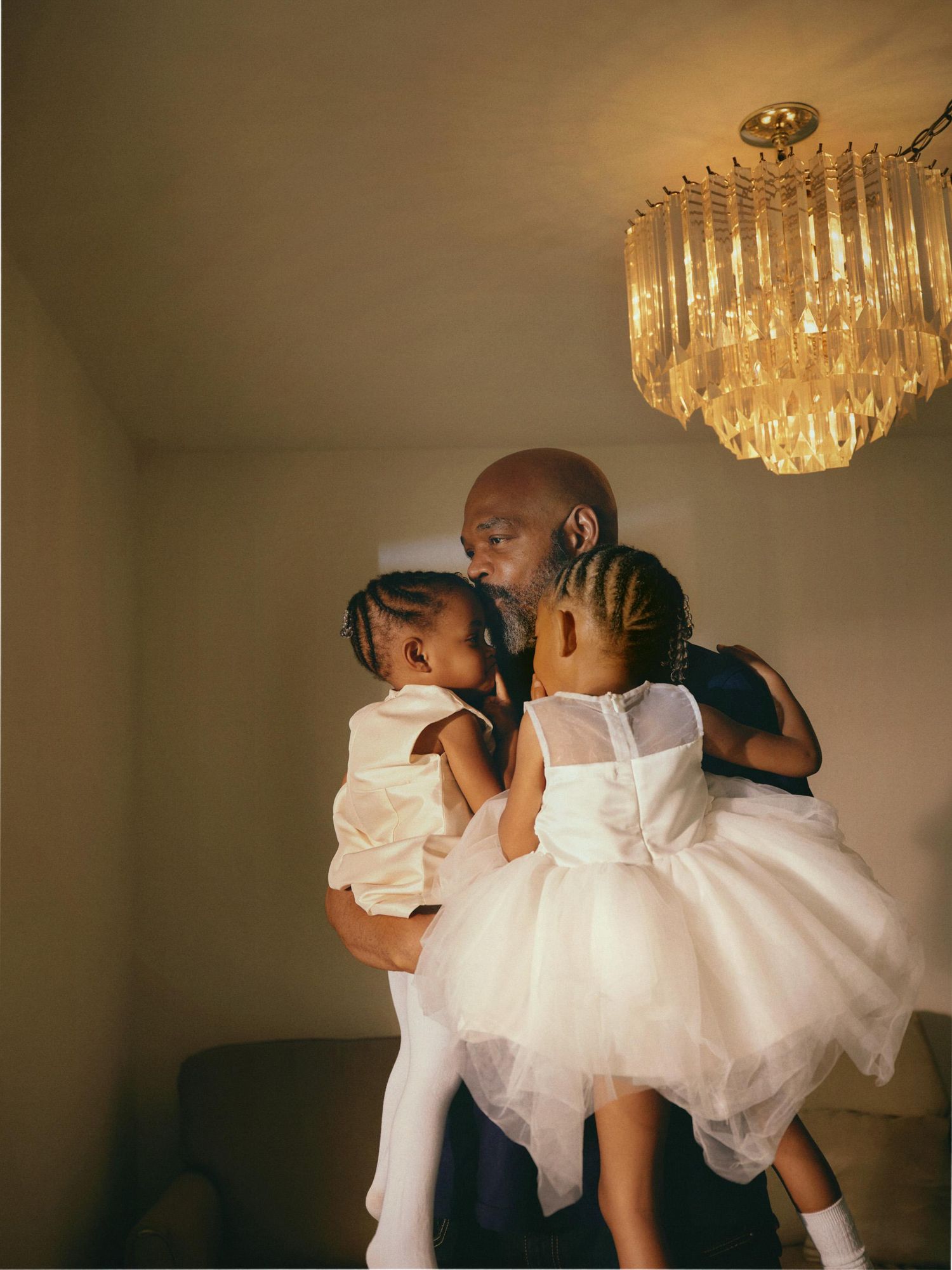
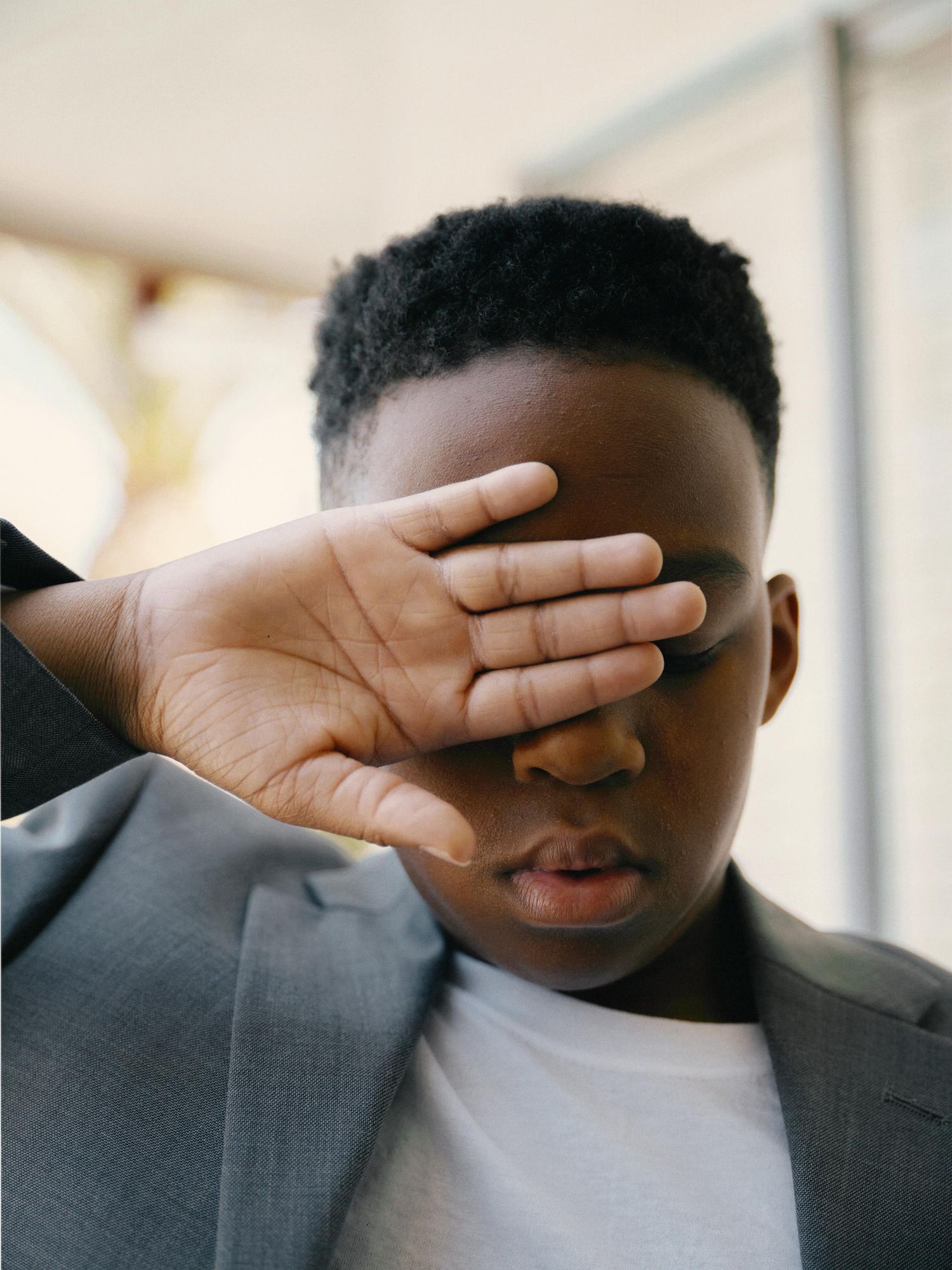
Speaking of Pharrell, what do you most appreciate in a subject? What do you look for?
"Inspiration. They have to inspire me. And in return, I inspire them because I'm building on what I get from them. From Pharrell to my brother. They are people that I look up to and I value. But it's different with family and more personal projects—you can feel more of the intimacy. With celebrity, it’s a process of getting to a point of opening up."
Is that something that has to come organically, or do you do anything to initiate that kind of vulnerability?
"I always have to have music, and I think music connects people more than anything because it's another art. When you're playing the right songs and you're able to communicate from that, that's when I think the real magic happens. Seeing that in their face, seeing that in their vulnerability—them feeling like they're at home; I think that's something I want to carry in all my photos."
Where are you gaining inspiration for your work now?
"I really love pop culture, and the weirdest things will inspire me. Right now, [laughs] I'm so embarrassed to say this, Nicki Minaj is dropping this song today called 'Bussin' that I'm really excited for. It's very inspirational because it's confidence. I'm inspired by people who are able to just speak their truth and not be afraid of how it could be perceived. Music, in general, is what's inspiring me. Even going back to B'Day. I think New York is a huge inspiration to me. Moving here at 18 changed my life forever."
The proceeds from your show sales are going to Agent Orange Record. Can you tell me about the decision to do that?
"With me honoring my dad with the archival work that I'm showing about him, I wanted to give back. Agent Orange really affected soldiers mentally and health wise when they came back to America. It's where a lot of terminal illness comes from; that's how he got prostate cancer—that's what the doctor told us. I really wanted to bring more awareness to the veterans. The Vietnam War was such a crazy time, especially being a Black American. I want to give back to those who were similarly affected by what happened to me and my family."
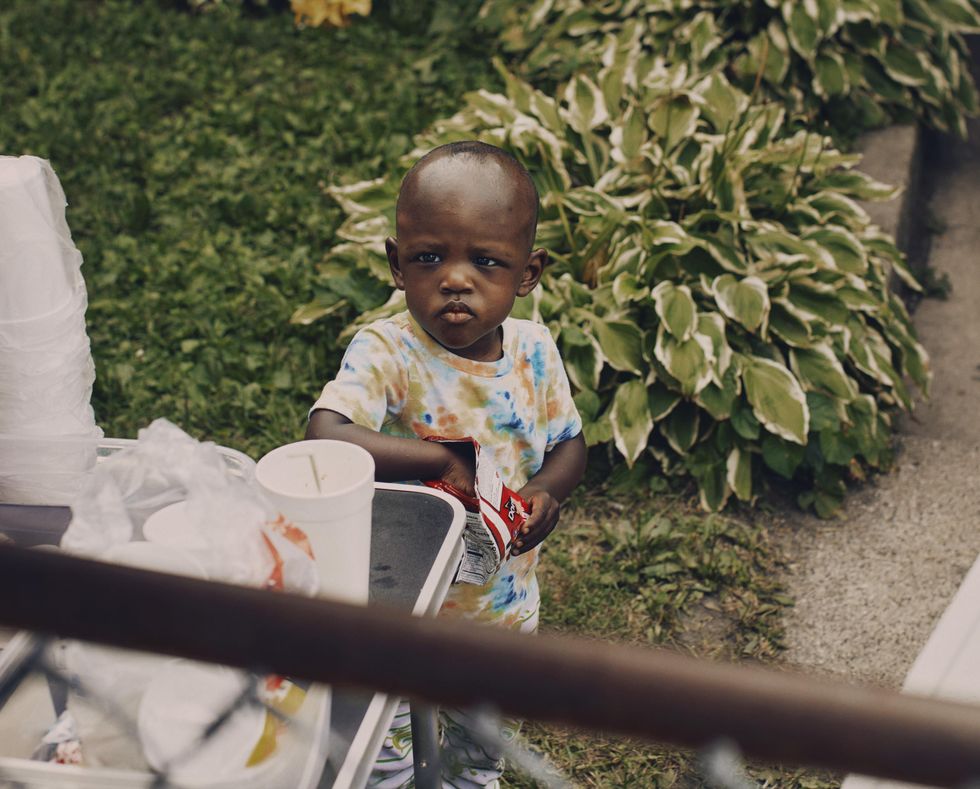
Can you tell me a little bit about your curation process with the ephemera featured in your show?
"I love looking at archives and my dad was a big inspiration for my thesis when I was in college. I did this project called 95 48, which eventually turned into what American Black Beauty is today. Family albums are a big part of our family, especially for my grandmother. She'd sit on the porch in Louisville, Kentucky and have the family gather around and look through the family album, from recent photos to photos of my great-great-grandfather, who was a slave. Having that legacy and learning about that, especially during the time of segregation, during the time of the Civil Rights Movement, was so important, and I think my dad really held onto that stuff, too. I think for me, learning about that [taught] me just how important it is to document in the present and what that means down the line."
I think your work could be inspiring to a lot of people, but especially to young, Black creatives. What do you wish to convey to them?
"I want to convey that they don't have to look too far for inspiration. It could be their family, it could be talking to their mother, talking to their father, uncle, cousin, even a friend that they're close with. I always say that you have to understand the past a bit to understand the present and use that to move on to the future."
Photos: Courtesy of Micaiah Carter
Want more stories like this?
Quil Lemons Takes Photographs That Speak the Truth
4 Emerging Fashion Photographers to Follow Now
An Ode to Going Out

